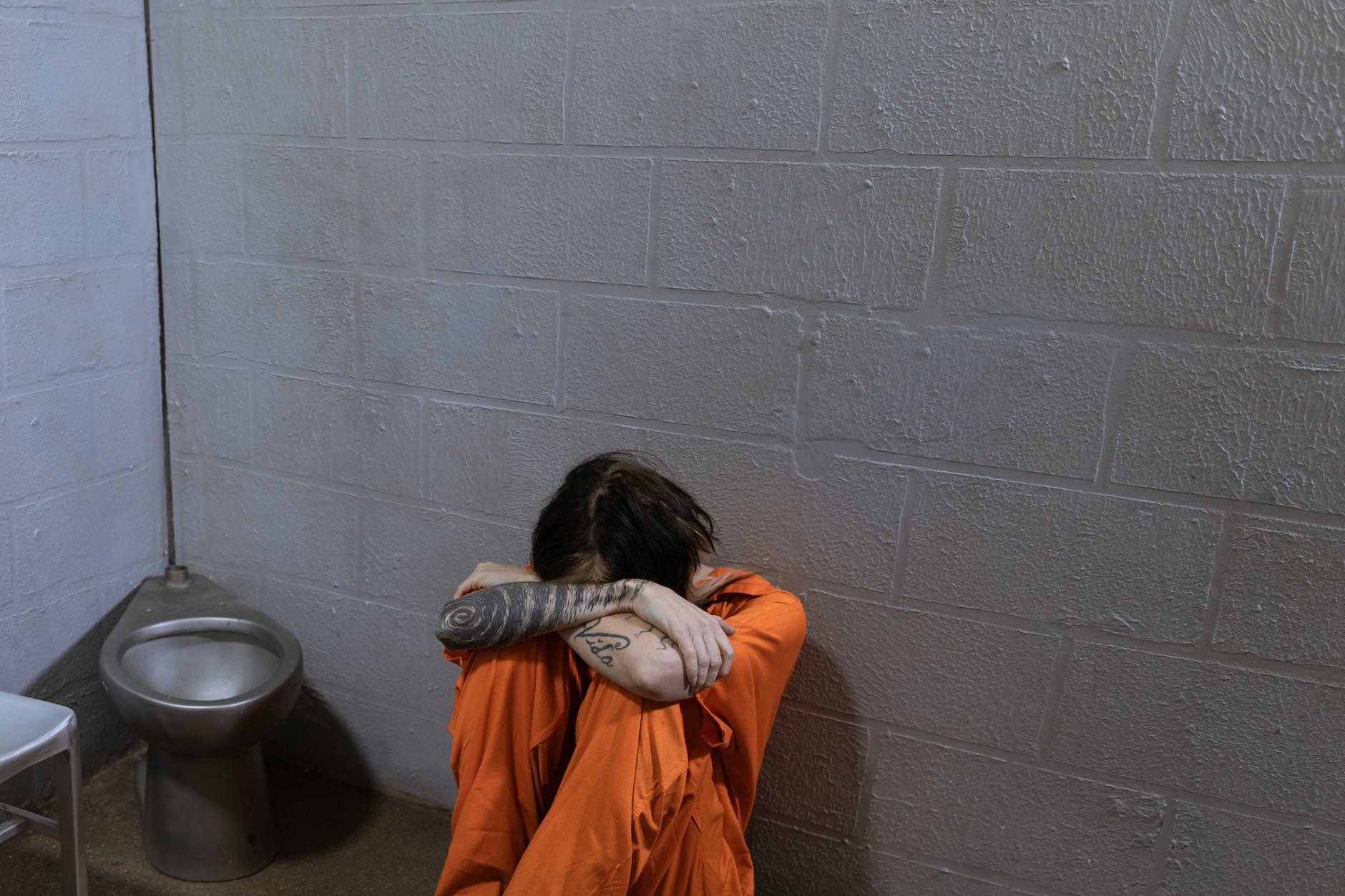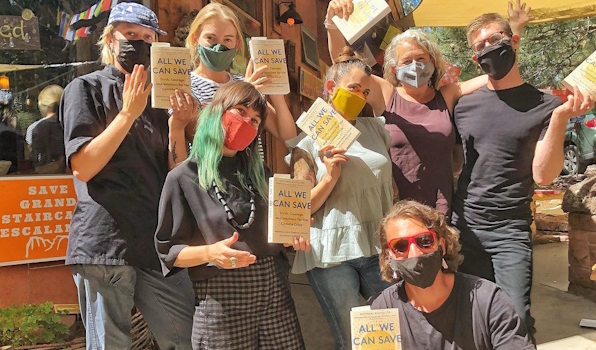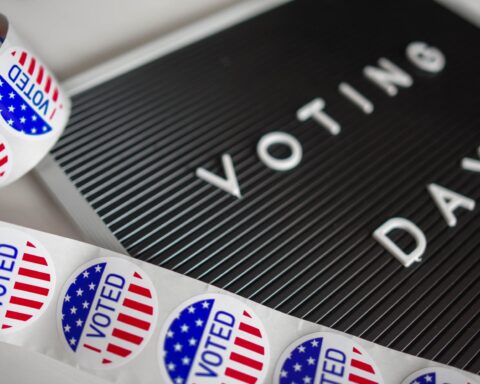Consistent with the New Federal Bill and With Veto-Proof Supermajority Support, Intro. No. 549 Provides New York City an Opportunity to Lead the Nation
Editor’s Note: The following article is derived from officially released information, published with few or no editorial changes. The Greylock Glass occasionally provides our readers with such content if the information is factual in nature, and requires little to no interpretation or analysis, often when original reportage would not provide additional relevant information.
NEW YORK — Last week, Congress Members Cori Bush (MO-01), Jamaal Bowman (NY-16), Adriano Espaillat (NY-13), Sydney Kamlager-Dove (CA-37), Rashida Tlaib (MI-12), and Bonnie Watson Coleman (NJ-12) introduced the End Solitary Confinement Act (text here and summary here), new and historic legislation that would end solitary confinement in all federal custody and incentivize states and localities to do the same. In response, New York elected officials and advocates lauded the introduction of the Act while also urging New York City to enact Intro. No. 549, pending legislation with veto-proof supermajority support and the backing of the City Council Speaker.
Jumaane Williams, the New York City Public Advocate, said, “I applaud Congresswoman Bush and her colleagues for introducing the End Solitary Confinement Act and moving to ban these deeply damaging practices nationwide. In local, state, and federal facilities, real people are suffering in solitude, many in silence – so we have to speak out. As the UN has said, solitary is a torturous and deadly practice, and here in New York City, despite what officials have argued, it is still happening in our city, just out of sight. Consistent with this new federal bill, New York City has an immediate opportunity to lead the nation – through ending solitary confinement and utilizing alternatives proven to better support people’s health and improve safety for people on both sides of the bars – by enacting my bill, Intro. No. 549, which has supermajority support. Solitary doesn’t make people safer – it only inflicts greater harm. New York City must finally end solitary confinement in all forms by all names, and the rest of the nation should follow.”
Victor Pate, Co-Director of the #HALTsolitary Campaign, said: “Congress Members Bush, Espaillat, Bowman, and their colleagues have taken a critical step today by introducing the End Solitary Confinement Act. Every elected representative should be doing everything in their power to stop the torturous and deadly practice of solitary confinement. Inactions to stop the massive infliction of government torture is tacit complicity. The U.S. Congress should urgently enact the End Solitary Confinement Act and the President should sign it into law. At the same time, already with veto-proof supermajority support, the New York City Council must immediately enact Intro. No. 549 to finally and fully end solitary confinement in New York City jails, and the Mayor must sign it into law.”
“Solitary confinement is a moral catastrophe. UN experts have condemned solitary as psychological torture—and that’s exactly what it is. This practice is traumatic for people subjected to it, harmful to communities, and isolating for loved ones. Moreover, it is disproportionately inflicted on Black and brown folks, young people, LGBTQ+ people, and other marginalized communities,” said Congresswoman Bush (MO-01), lead sponsor of the End Solitary Confinement Act. “I’m proud to lead my colleagues, advocates, and survivors of solitary confinement in introducing this groundbreaking legislation. Together we will save lives by ending this heinous and immoral practice once and for all.”
“We know the clear, irreversible harm that solitary confinement causes to individuals, yet we continue to use this form of torture across the American criminal justice system,” said Congressman Espaillat (NY-13), Co-Lead Sponsor. “These harms are well documented and lead to increased mental health risks and heightened rates of suicide. Solitary confinement is inhumane, and this form of torture should never be used, period. I am proud to join my colleagues in introducing the End Solitary Confinement Act to ban this practice across our justice system in its entirety.”
“Solitary confinement is torture, and it has no place in America,” said Congressman Bowman (NY-16), Co-Lead Sponsor. “Merciless practices like solitary confinement directly target marginalized groups–including people of color, young people, LGBTQ+ individuals, and Disabled individuals who are already disproportionately impacted by our prison industrial system–and cause lifelong trauma. We must end this form of cruel and traumatic punishment for everyone. I’m proud to join Representatives Bush, Espaillat, Kamlager-Dove, Tlaib, and Watson Coleman in bringing forth this lifesaving legislation to preserve the humanity and dignity of incarcerated individuals. I look forward to working with my colleagues on creating a safer justice system that prioritizes care and restoration over punishment and incarceration.”
“Current practices around solitary confinement would be categorized as human rights violations in any other context in any other country,” said Congresswoman Kamlager-Dove (CA-37), Co-Lead Sponsor. “If we want incarcerated individuals to leave the system rehabilitated and truly decrease recidivism, we must treat the incarcerated like people first. I am glad to support Congresswoman Bush’s legislation, and I will continue to stand with my colleagues and work to reform our outdated criminal justice system.”
“Solitary confinement is torture and torture should have no place in our society,” said Congresswoman Tlaib (MI-12), Co-Lead Sponsor. “It takes a devastating toll on mental health, heightens the risk of self-harm and suicide, increases recidivism, and can lead to severe psychological trauma. We need to lead with restorative justice and recognize the human dignity of incarcerated people by abolishing this dehumanizing practice once and for all.”
“Most Americans agree that the extensive use of solitary confinement is morally indefensible,” said Congresswoman Watson Coleman (NJ-12), Co-Lead Sponsor. “The use of solitary confinement has been shown to significantly harm to the incarcerated individual’s mental health leading to self-mutilation, anxiety, depression, psychosis, mental deterioration, and suicide. The United States is currently going through a significant mental health crisis to which the Federal government should not be contributing through its extensive use of solitary confinement. Congresswoman Bush’s bill to end the extended use of solitary confinement is a step in the right direction towards our goal of rehabilitation and mental health.”
Recent polling shows widespread, bipartisan public support for banning solitary, including the specific requirements of the End Solitary Confinement Act and Intro. No. 549, and a growing number of jurisdictions around the country are introducing legislation to end or limit solitary. The End Solitary Confinement Act, like Intro. No. 549, draws from these best practices and policies to ban solitary beyond a maximum of four hours for emergency de-escalation, and require alternatives with access to 14 hours of daily out-of-cell group engagement.
Over 150 organizations nationwide have already endorsed the End Solitary Confinement Act, including the NAACP, ACLU, Color of Change, the Advancement Project, LatinoJustice PRLDEF, Southern Center for Human Rights, National Disability Rights Network, and the Vera Institute, and leading human rights and racial justice experts, including members of the Federal Anti-Solitary Taskforce (FAST), lauded the Act’s introduction and urged Congress and the President to act now to fulfill the President’s pledge to end solitary.
Evidence has long shown solitary causes devastating and deadly harm, worsens safety for everyone, and is inflicted disproportionately on Black people, Latina/o/x people, Native people, other people of color, and LGBTQ people. Yet, prisons, jails, and detention centers continue to daily lock over 122,000 people in solitary.
BACKGROUND:
On Recent Nationwide Poll: Recent nationwide polling data released by Data for Progress shows widespread bipartisan support for the specific provisions banning solitary confinement contained in the End Solitary Confinement Act. Specifically, voters – including 78% of Democrats, 61% of Independents, and 51% of Republicans – support by a +32-point margin: “legislation that would limit solitary confinement to a maximum of 4 hours per day [and] ensure that anyone in solitary confinement receives regular support from medical and mental health staff, and that solitary confinement is used only for emergency situations involving serious physical injury”.
On Torturous & Counterproductive Harm of Solitary: Solitary confinement causes self-mutilation, heart disease, anxiety, depression, and psychosis. It makes jails and outside communities less safe. Studies have indicated that people in solitary are seven to 12 times more likely to engage in self-harm, and five to six times more likely to die by suicide, than the rest of the prison or jail population – a population already at high risk of self-harm and death by suicide. Even after release from jail or prison, a study of hundreds of thousands of people released from prison in North Carolina over a 15 year period found that people who had spent time in solitary were significantly more likely to die by suicide and other causes. Research shows that even only one or two days in solitary leads to significantly heightened risk of death by accident, suicide, violence, overdose, and other causes. On the day she died, Layleen Polanco was locked in solitary for only two to three hours. By causing people to deteriorate, solitary makes it more likely, not less, that people will engage in harmful acts, and people who have spent time in solitary are more likely to be rearrested after release.
Brandon Rodriguez died after he was locked in solitary in a shower cage. The city jails locked Elijah Muhammad in solitary in those same shower cages to the point he was found with a ligature around his neck, and then subsequently placed Elijah in another form of solitary confinement, leading to his death.
On the Benefits of Alternatives to Solitary: Best practices in youth and mental health facilities limit isolation to minutes or hours at most. The evidence is clear: what actually works to address violence is the exact opposite of solitary: access to full days of out-of-cell pro-social program-based interventions like the CAPS program in NYC jails, the Merle Cooper Program in NYS, and the RSVP program in San Francisco jails. For example, the RSVP program included people who had carried out acts of assault, sexual assault, other violent acts, and repeated “heinous” acts, and led to a precipitous drop in violence among participants to the point of having zero incidents over a one year period.








